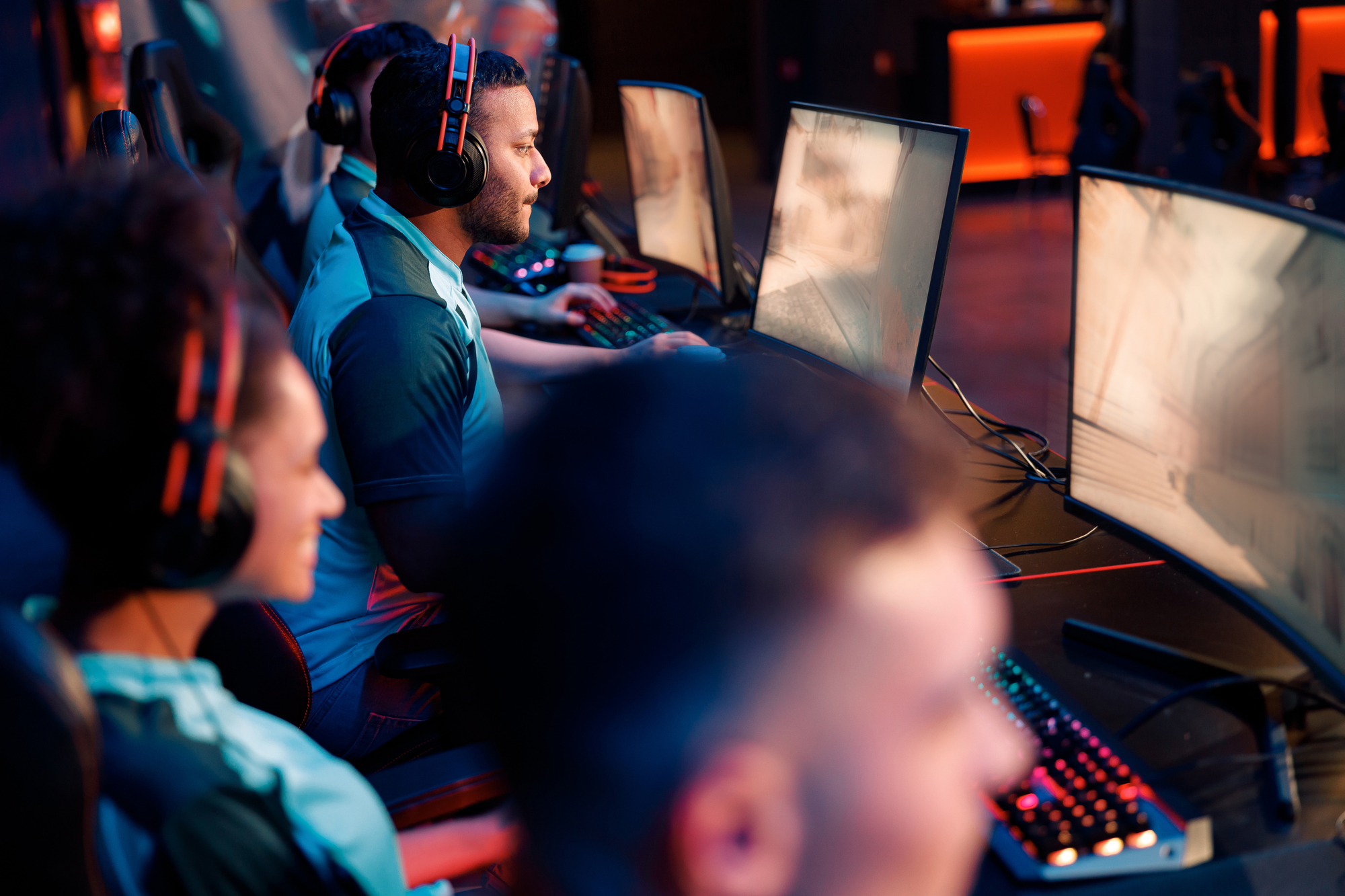Online games are revolutionizing the sports landscape, blending virtual and physical realms in unprecedented ways. Esports has emerged as a global phenomenon, attracting millions of viewers and transforming competitive gaming into a legitimate spectator sport. The integration of advanced technology in online games is reshaping traditional sports, creating new opportunities for athletes, fans, and businesses alike.
The rise of esports has fostered vibrant online communities, connecting players and spectators from around the world. These digital platforms enable real-time interaction, strategic discussions, and shared experiences, enhancing the social aspect of sports. As online games continue to evolve, they are influencing the way people engage with sports content, driving innovation in broadcasting, fan engagement, and athlete training.
The impact of online games extends beyond the virtual arena, influencing the design and structure of physical sports events. Tournaments now incorporate elements from the digital world, creating immersive experiences for both in-person and remote audiences. This convergence of online and offline sports is setting new standards for entertainment, pushing the boundaries of what’s possible in competitive athletics.
The Impact of Esports on the Sports Industry
Esports has transformed the sports landscape, challenging traditional notions of athleticism and competition. The rise of competitive gaming has created new opportunities for athletes, fans, and businesses alike.
Rise of Esports
Esports has experienced rapid growth in recent years. Global viewership for major tournaments now rivals that of traditional sports events. Games like League of Legends, Dota 2, and Counter-Strike: Global Offensive attract millions of viewers worldwide.
The esports industry has become a significant economic force. Sponsorships, media rights, and merchandise sales generate substantial revenue. Major brands are investing heavily in esports teams and events.
Professional gamers now enjoy celebrity status similar to traditional athletes. They train rigorously and compete for large prize pools. Some earn six-figure salaries through tournament winnings and sponsorships.
Esports vs. Traditional Sports
Esports and traditional sports share many similarities but also key differences. Both feature skilled competitors, passionate fans, and organized leagues. However, esports offers unique accessibility and global reach.
Traditional sports require physical venues and equipment. Esports can be played and watched from anywhere with an internet connection. This allows for larger, more diverse audiences and participants.
Fan engagement in esports is highly interactive. Viewers can watch live streams, chat with players, and even compete alongside professionals. Traditional sports are exploring similar digital engagement strategies.
The esports industry faces challenges in gaining mainstream acceptance. Critics question its legitimacy as a sport. However, its growing popularity and economic impact are undeniable.
Technological Advancements Shaping the Gaming Experience
Online gaming continues to evolve rapidly, driven by cutting-edge technologies. These innovations transform how players interact with games and each other, creating immersive and engaging experiences.
Virtual and Augmented Realities
VR and AR technologies are revolutionizing online gaming. VR headsets transport players into fully immersive 3D environments, allowing them to interact with game worlds in unprecedented ways. AR overlays digital elements onto the real world, blending virtual and physical spaces.
These technologies enhance gameplay by increasing immersion and interactivity. VR games like “Half-Life: Alyx” showcase the potential for deeply engaging experiences. AR games such as “Pokémon GO” demonstrate how digital elements can integrate with real-world environments.
As VR and AR hardware becomes more affordable and sophisticated, their adoption in online gaming is likely to grow. This could lead to new genres and gameplay mechanics that fully leverage these immersive technologies.
Artificial Intelligence in Gaming
AI is transforming online gaming across multiple fronts. Game developers use AI to create more realistic non-player characters (NPCs) with advanced behaviors and decision-making capabilities. This results in more challenging and dynamic gameplay experiences.
AI also powers procedural content generation, allowing for vast, unique game worlds and endless variations in gameplay. Games like “No Man’s Sky” use AI to generate entire planets and ecosystems, creating a sense of infinite exploration.
Machine learning algorithms are improving matchmaking systems in online multiplayer games. These systems analyze player data to create balanced and competitive matches, enhancing the overall gaming experience.
The Evolution of Gaming Hardware
Gaming hardware continues to advance, enabling more powerful and sophisticated online gaming experiences. High-performance processors and graphics cards allow for increasingly realistic visuals and complex game mechanics.
The rise of cloud gaming services is changing how players access games. These platforms stream games directly to devices, reducing the need for expensive hardware and making high-quality gaming more accessible.
5G networks are improving mobile gaming by reducing latency and increasing data transfer speeds. This enables more complex online games on smartphones and tablets, blurring the lines between mobile and console gaming experiences.
Business Models and Revenue in the Gaming Sector
The gaming industry has developed diverse revenue streams and business models to capitalize on its growing popularity. These approaches range from direct game sales to innovative monetization strategies in esports.
Monetization of Esports
Esports organizations generate income through multiple channels. Prize pools from tournaments form a significant revenue source, with top events offering millions in winnings. Team franchising has become common in major leagues, providing stable income for organizations. In-game purchases and virtual item sales contribute substantially to game developers’ profits. Streaming platforms like Twitch allow players to earn from subscriptions and donations. Many esports teams also sell branded merchandise to fans.
Sponsorships and Advertising
Sponsorships play a crucial role in the gaming sector’s financial ecosystem. Major brands invest in teams, tournaments, and individual players to reach young, engaged audiences. Endemic sponsors (gaming-related companies) and non-endemic sponsors (from other industries) both feature prominently. Advertising takes various forms, including in-game ads, sponsored content on streaming platforms, and product placement during broadcasts. Teams often display sponsor logos on jerseys and equipment. Tournament organizers sell naming rights and branding opportunities for events.












